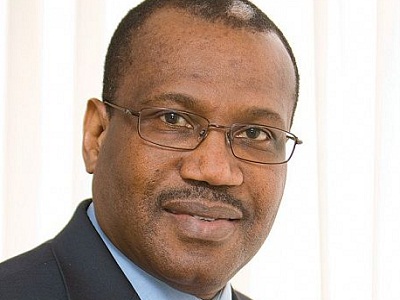Broadcasting
ITU Says Broadcasting is Key Communication Medium in Emergencies

A new ITU report has highlighted the importance of international cooperation needed to enhance the reach of broadcasting in emergency situations, such as in the Philippines, which was recently devastated by Typhoon Haiyan and the cyclones that have battered the coastal districts of eastern India.
According to ITU, the Report on Emergency Broadcasting on the essential role of terrestrial radio and television broadcasting will be finalized by April 2014 and made available online free of charge.
The Report will be compiled by co-Rapporteurs to Study Group 6, Lynn Claudy (National Association of Broadcasters, USA) and Gary Stanley (Babcock International Group, U.K.).
“Emergency broadcasting plays a critical role in the rapid dissemination of information to the public, and is a key element in helping save lives in the aftermath of natural disasters,” said Hamadoun I. Touré , ITU secretary-general.
“The ITU Report on Emergency Broadcasting will provide broadcasters, first responders and the general public important information on how to prepare for natural disasters and their aftermath.” He added
For many decades, radio and television broadcasters have been the primary source of critical information to the public in the event of disasters such as tornadoes, hurricanes, floods, snowstorms, earthquakes, tsunamis, and even terrorist attacks and industrial catastrophes. Due to their wide coverage, broadcasting services are more likely to survive such events than other communication networks.
Radio and television broadcasting provides reliable point-to-multipoint delivery of essential information and safety advice to the public as well as to first responders and others via widely available consumer receivers, both mobile and fixed.
Even in cases where electricity and mobile-phone base stations are no longer available, reception of broadcast signals is still possible with battery-operated receivers in cars and in hand-held devices such as mobile phones equipped with a radio or TV receiver.
“The Workshop addressed key issues related to broadcasting as a means of communicating to the public during emergencies and how it fulfils these requirements most reliably and effectively,” said Mr François Rancy, director of ITU’s Radiocommunication Bureau.
“With the number of natural disasters and other large-scale emergency situations on the rise around the world, as we have seen with the devastation caused by the recent Typhoon Haiyan, it is absolutely essential that the public is provided the necessary emergency information quickly, comprehensively and accurately,” said Christoph Dosch, Chairman of ITU-R Study Group 6 (Broadcasting service).
“Terrestrial television and radio broadcasters provide the fastest, reliable and most effective means of delivering information to the public in these critical situations.
Broadcasting
Celebrating a Visionary Leader Governor Charles Chukwuma Soludo, CFR at 65

By Chukwuemeka Fred Agbata (CFA)
Today, we celebrate a leader whose unwavering commitment to “Everything Technology, Technology Everywhere” is turning bold ideas into real impact for Ndi Anambra.

As someone privileged to lead the Anambra State ICT Agency, driving e-governance initiatives, and now the Geeks & Founders Alliance for Soludo (GEFAS), a coalition of tech professionals, founders, and enthusiasts advancing technology and championing the re-election of Governor Soludo, I see first-hand how Mr. Governor’s vision keeps challenging us to push boundaries: from digitizing government operations to expanding free Solution WiFi, deploying smart solutions, and driving public-private partnerships that create jobs and make Anambra truly work for the people.
Today, under his visionary leadership, the combination of solid physical infrastructure, livable cities, and a growing digital backbone is fast positioning Anambra as an attractive hub for talent, investment, and innovation- a destination and not a departure lounge
Leadership is not about lofty speeches but clear action, and Governor Soludo has shown us that bold decisions, like removing Right of Way charges to drive connectivity, can transform an entire ecosystem.
As we mark his birthday, we rededicate ourselves to this vision: a smarter, more connected, and prosperous Anambra that works for all.
Happy Birthday, Mr. Governor, Oluatuegwu!
Here’s to more impact, more solutions, and a future that keeps rising.
Broadcasting
Court Upholds AVRS Legal Rights to Licence Audiovisual Works in Hotels

Federal High Court sitting in Abuja has upheld the statutory right of the Audiovisual Rights Society of Nigeria (AVRS) to licence hotels and other business establishments for the public use of audiovisual works (movies and films) transmitted within their premises via Pay-TV subscriptions.

This is a landmark judgment that reaffirms the rights of Nigerian copyright holders and strengthens the creative ecosystem.
Justice Obiora Egwuatu, who gave the judgment, dismissed the case filed by Reiz Continental Hotel Limited against AVRS, where the hotel sought a declaration that it could not be compelled to pay copyright fees for audiovisual content (movies and films) accessed through subscription-based broadcasting.
In the ruling delivered on Thursday, July 24, the court held that AVRS, by virtue of its status as assignees of copyright in several audiovisual works, and approved collective management organisation (CMO) pursuant to Section 88 of the Copyright Act 2022, had demonstrated the legal basis of its licencing activities, and was entitled to issue copyright licences to users of audiovisual works belonging to it, including the Plaintiff (Reiz Continental Hotel Limited). Abuja Formula 1 Grand Prix ticketsNigerian cuisine recipes
The court rejected the claims of Reiz Continental Hotel that it was merely a recipient of broadcasts from a pay subscription television service, and therefore not liable to any licence from AVRS.
It held that the activities of Reiz Continental Hotel, operating a hospitality business, which is profit-driven, and possessing several television sets, which transmit audiovisual content, were carried out in contravention of sections 11(b), (c) and (f) of the Copyright Act in respect of the rights held by AVRS.
The court also held that the acts of transmission of audiovisual works by Reiz Continental Hotel, since done in the context of business, were in contravention of section 36(1)(a) and (g) of the Copyright Act, unless licensed by AVRS.
According to the court, the provision of section 36(1)(g) of the Copyright Act, 2022, renders a person liable for infringement of copyright for performing or causing to be performed for the purposes of trade or business or the promotion of a trade or business, any work in which copyright subsists.
The court further held that participation in a collective licencing agreement by the Hotel Owners Forum Abuja (HOFA), of which Reiz is a member, was binding on Reiz and stopped it from denying the validity of the agreement with AVRS.
Speaking on the judgment, Mike O. Akpan, legal counsel to AVRS and principal partner, Alpha-Edge Legal, said that the judgment is not only a legal victory for AVRS and its members, but also a significant affirmation of Nigeria’s commitment to upholding copyright law and protecting creative enterprise. Nigerian cuisine recipes
He added that it establishes a strong precedent for copyright enforcement across the hospitality sector and other commercial users of protected content.
Reacting to the landmark judgment, Mr. Mahmood Ali-Balogun, chairman of AVRS, said: “This judgment is a profound moment for members of AVRS. It affirms the legitimacy of our collective licencing structure and ensures that copyright owners in the film and movie sector are rightfully protected under the law.
“AVRS has always approached licencing with openness, fairness, and a readiness to dialogue. Today’s court decision is a win for our members, the film industry, for Nigerian creators, and for the nation. It strengthens the foundation upon which the creative economy can grow and attract investment.”
Broadcasting
NDPC Hides MultiChoice Privacy Violation Details Despite FOI Request- FIJ

Nigeria Data Protection Commission (NDPC) has refused to release details of the data and privacy rights violation for which it fined MultiChoice Nigeria, despite receiving a Freedom of Information (FOI) request from FIJ.

FIJ otherwise Foundation for Investigative Journalism, is an independent, not-for-profit organisation that combats injustice, holds power to account and speaks for the voiceless.
In its announcement on July 6, the NDPC said it had fined MultiChoice Nigeria N766,242,500 for breaching the data and privacy rights of subscribers and even those who are not necessarily subscribers.
FIJ emailed the data protection commission an FOI request on July 9.
The commission acknowledged the receipt of the email that same day and added: “It has been forwarded to the relevant department and we would respond soon.”
Fifteen days later, FIJ got no other response from the NDPC.
In Nigeria, FOI requests have a seven-day timeframe, and it starts counting as soon as a public institution receives a request for public information.
FIJ understands that holidays, which include a Sunday and a public holiday, are to be excluded in the computation of the timeframe.
The receiving institution is mandated, within those seven days, to either provide the requested information or explain in detail why it is unable to do so based on the provisions of the FOI Act.
Established under the Nigeria Data Protection Act 2023, the NDPC’s tasks include safeguarding data privacy, enforcing regulations and promoting responsible data handling in the country.
When the Commission announced the N766.2 million fine against MultiChoice Nigeria, it said the company had violated the privacy rights of subscribers and allowed the illegal cross-border transfer of personal data of Nigerians.
MultiChoice Nigeria operates through various subsidiaries, such as DStv and GOtv. The NDPC said it launched an investigation into the company in the second quarter of 2024.
“NDPC found, among others, that Multichoice violated the data privacy rights of subscribers and their friends who are not necessarily subscribers,” the statement issued by NDPC read in part.
“The Commission also found that Multichoice carries out illegal cross-border transfer of personal data relating to data subjects in Nigeria. The depth of data processing by Multichoice is patently intrusive, unfair, unnecessary and disproportionate.”
FIJ’s FOI request aimed to understand the extent of the data and privacy breaches committed by MultiChoice Nigeria, the remedial measures directed by the NDPC and the specific channels through which the company collected the personal data of Nigerians.
Two weeks after the request was submitted, the NDPC has refused to respond.
Section 7, sub-section 4, of the Freedom of Information Act (2011) states, “Where the government or public institution fails to give access to information or record applied for under this Act or part thereof within the time limit set out in this Act, the institution shall, for the purposes of this Act, be deemed to have refused to give access.”
According to the Act, where a case of wrongful denial of access is established, the defaulting officer or institution commits an offence and is liable on conviction to pay a N500,000 fine.
At the time of this report, there was no publicly documented case of the NDPC granting an FOI request to share more details after an investigation.
In 2023, FIJ detailed how the Nigerian government often violated the FOI Act. Journalists at top newspapers in the country noted that government agencies had a habit of disregarding FOI requests, despite being legally obligated to respond.

 E-Business1 day ago
E-Business1 day agoHuawei Unveils AI Computing System to Challenge Nvidia’s Flagship Product

 E-Financial1 day ago
E-Financial1 day agoEdun, Finance Minister Inaugurates NDIC New Management

 General News1 day ago
General News1 day agoNew Tax Law Empowers NRS to Fine Offenders up to N10m

 E-Financial1 day ago
E-Financial1 day agoUnion Bank Rewards Customers with ₦5 Million Each in Save and Win Palli Promo Season 4 Grand Finale

 News1 day ago
News1 day agoLawyers Drags NLS to Court for Alleged Election Fraud, Data Violation

 Broadcasting1 day ago
Broadcasting1 day agoCourt Upholds AVRS Legal Rights to Licence Audiovisual Works in Hotels

 General News1 day ago
General News1 day agoTaskforce Arrests Six for over Fake Lottery Scam

 News1 day ago
News1 day agoNASRDA Celebrates Chief Owolabi Salis on His Historic Space Mission

























